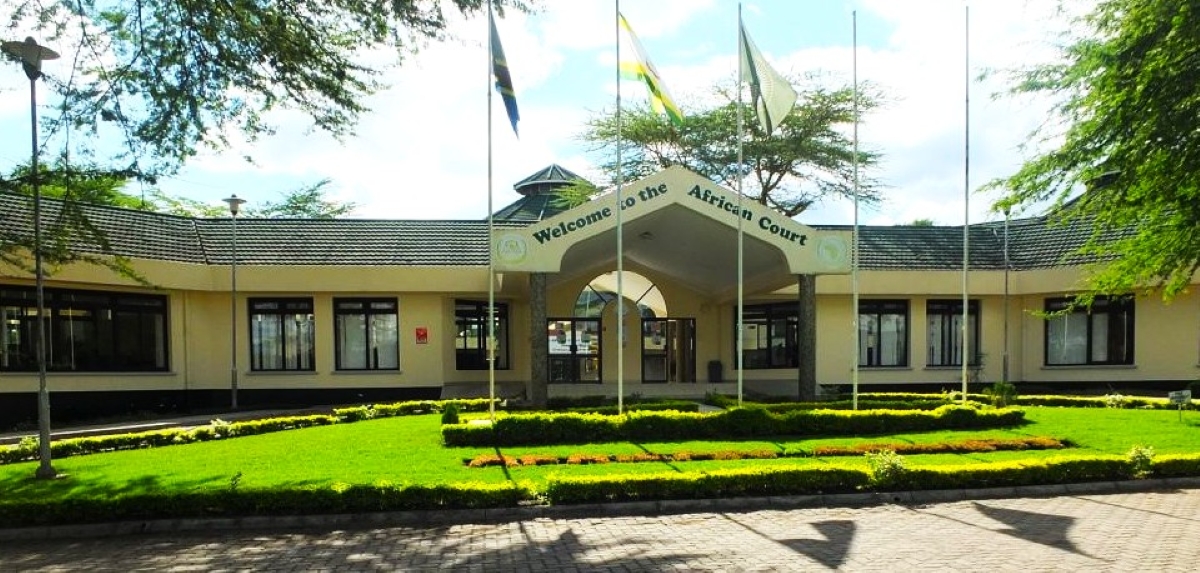The Democratic Republic of the Congo has submitted to the African Court on Human and Peoples’ Rights in Arusha an application against the Republic of Rwanda.
The case hearing starts on the 12th of February 2025, at the African Court’s seat in Arusha.
The Democratic Republic of Congo is requesting the Pan-African Court to order Rwanda to withdraw its troops from the Applicant State’s territory and immediately halt all forms of support for the rebel coalition under M23.
In its Application, DR Congo avers accuses Rwanda for the conflicts currently escalating in the Eastern Parts of the former, that reportedly started back in 2021 in the Kivu region.
Kinshasa alleges that in the east of its territory, an armed conflict broke out and has been going on between its army and a coalition made up of Rwanda’s defense forces and a rebel movement called the M23 supported by the Respondent State, hereinafter referred to as “the Coalition”.
The Applicant State avers that in January 2022, the said coalition launched simultaneous attacks against its positions and those of the United Nations peacekeeping mission (MONUSCO), first in the vicinity of Shangi, on 22 May 2022.
The attacks were later also launched in the localities of Kibumba in the Nyiragongo territory, Tchanzu, Runyonyi, Kanombe and Rumangabo within the Rutshuru territory.
It claims that the coalition is currently occupying several localities in North Kivu province, including Bunagana, Kiwanja, Kibumba and Kitshanga in the Rutshuru, Nyiragongo and Masisi territories.
The Applicant State alleges that within the context of the said conflict, the coalition carried out massacres in the villages of Ruvumu on 21 June 2022, Kalindi in June and July 2022, Ruseke on 1 July 2022 and especially at Kishishe-Bambo on 29 and 30 November 2022 where 130 people were killed.
DR Congo further avers that the Coalition’s actions and inactions have also resulted in the internal displacement of Five Hundred and Twenty Thousand (520,000) persons, as well as in a cholera epidemic in the Kanyaruchina camp, near Goma.
There is also the issue of destruction and closure of schools thereby depriving Twenty Thousand (20,000) children of education, destruction of infrastructure such as electricity supply facilities, and the looting and destruction of agricultural infrastructure, homes and health centers.

The Applicant State recalls that the conflict broke out after the “wars of aggression” waged by the Respondent State from 1998 to 2002, by the Respondent State and a rebel group called Congrès national pour défense du peuple (CNDP), and by the Coalition from 2012 to 2013.
Kinshasa avers that, with regard to the 1998-2002 conflict, the African Commission on Human and Peoples’ Rights (the Commission) ruled that the Respondent State violated the Charter and recommended adequate compensation for the victims of human rights violations.
The Applicant State further maintains that the Respondent State continues to harbor on its territory individuals whom it has refused to try or extradite, particularly Laurent Nkunda, former leader of the National Congress for the Defence of the People (CNDP), and M23 leaders who are suspected or accused of serious international crimes and against whom its courts have issued international arrest warrants.
Consequently, the Applicant State requests the Court to assume jurisdiction and to declare the Application admissible; to hold that the Respondent State violated various human, women and children rights.
As regards reparations, the Democratic Republic of Congo requests the Court to order the Respondent State to withdraw its troops from the Applicant State’s territory and immediately halt all forms of support for M23 coalition.
DR Congo also wants Rwanda to put an end to the human rights violations.
The Applicant wants the African Court to order the Respondent State to adequately repair the damage caused by the said violations, both to itself and to its populations who have been victims of the said violations; rule that the issue of reparation owed by the Respondent State shall be settled by the Court; reserve further proceedings in accordance with the combined provisions of Article 27(1) of the Protocol and Rules 40 (4) and 69 (3) of the Rules of Court; lastly, order the Respondent State to reimburse him all costs.

